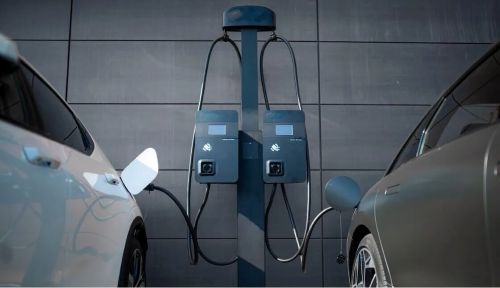


EV Charging as a Service (EV CaaS): A Game-Changer for Sustainable Mobility
Introduction
As electric vehicle (EV) adoption continues to rise, the demand for accessible, reliable charging infrastructure grows with it. Yet, the high costs and complexities of installing and managing EV charging stations remain a major hurdle for many businesses and property owners. Enter EV Charging as a Service (EV CaaS)—a game-changing model that streamlines the deployment of EV charging infrastructure with minimal financial and operational burden. This article explores what EV CaaS is, the types of China EV chargers available, the benefits of the model, and how to choose the right provider for your property.
EV Charging as a Service (EV CaaS) is a turnkey subscription-based model that provides everything needed to install and operate EV charging stations—without upfront capital investment. The service typically includes:
Hardware and software
Installation
Maintenance
Customer and driver support
All of this is offered under a predictable monthly payment plan, enabling businesses to provide EV charging while leaving the technical and operational complexities to experienced providers like EV Connect. EV CaaS is especially attractive for companies looking to attract EV-driving customers or employees, boost property value, and contribute to sustainability goals.
Selecting the right type of charger is key to meeting user expectations and operational needs. The three main types are:
Power Source: 120V standard wall outlet
Charging Time: 40–50 hours for a full charge
Use Case: Home/residential use only
Limitation: Impractical for commercial or high-traffic environments
Power Source: 240V
Charging Rate: ~100 miles per 8 hours
Use Case: Workplaces, apartments, retail locations
Balance: Cost-effective and widely used in commercial settings
Charging Speed: 80% charge in 20–30 minutes
Use Case: High-traffic zones, highways, fleet operations
Consideration: High installation cost (often $120,000+) and complex permitting
Essential for: Long-distance travel and rapid fleet turnover
Avoid the large capital expenditure usually required for charging infrastructure.
Subscription-based billing simplifies budgeting and reduces financial uncertainty.
Providers handle installation, repairs, software updates, and customer service—so you don’t have to.
EV charging stations enhance property appeal and marketability.
Many agreements let property owners retain revenue from charging sessions.
Easily expand infrastructure as demand grows—without major reinvestment.
1. Assess Total Cost of Ownership
Compare the total lifecycle costs of purchasing infrastructure outright versus the predictable monthly fees of CaaS.
2. Understand Revenue Sharing
Choose agreements that let you retain some or all charging revenue to offset costs.
3. Prioritize Contract Flexibility
Avoid long-term lock-ins. Look for providers offering short, adaptable contract terms.
4. Look for All-Inclusive Support
Ensure 24/7 support, proactive maintenance, and software updates are included.
5. Check Provider Credentials
Experience matters. Choose partners with a strong portfolio of successful EV charging deployments.
EV Charging as a Service (EV CaaS) is revolutionizing how organizations adopt EV infrastructure. By eliminating upfront costs, simplifying operations, and offering scalable, fully managed solutions, EV CaaS empowers property owners to meet today’s demand while preparing for tomorrow’s growth. Whether you’re aiming to attract eco-conscious tenants, generate new revenue, or meet sustainability targets, EV CaaS offers a smart, future-proof path forward.Know more about Google SEO Directory
